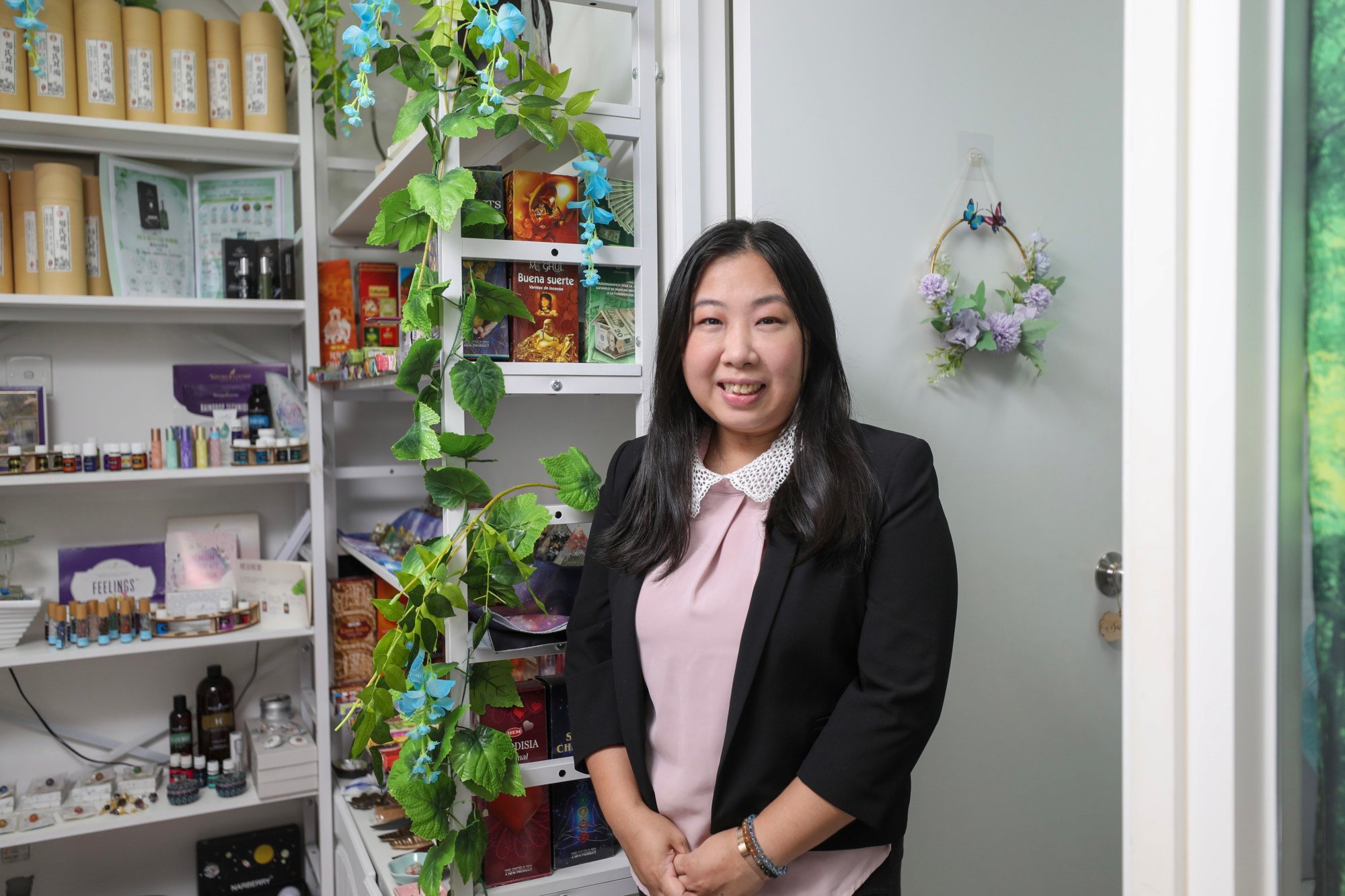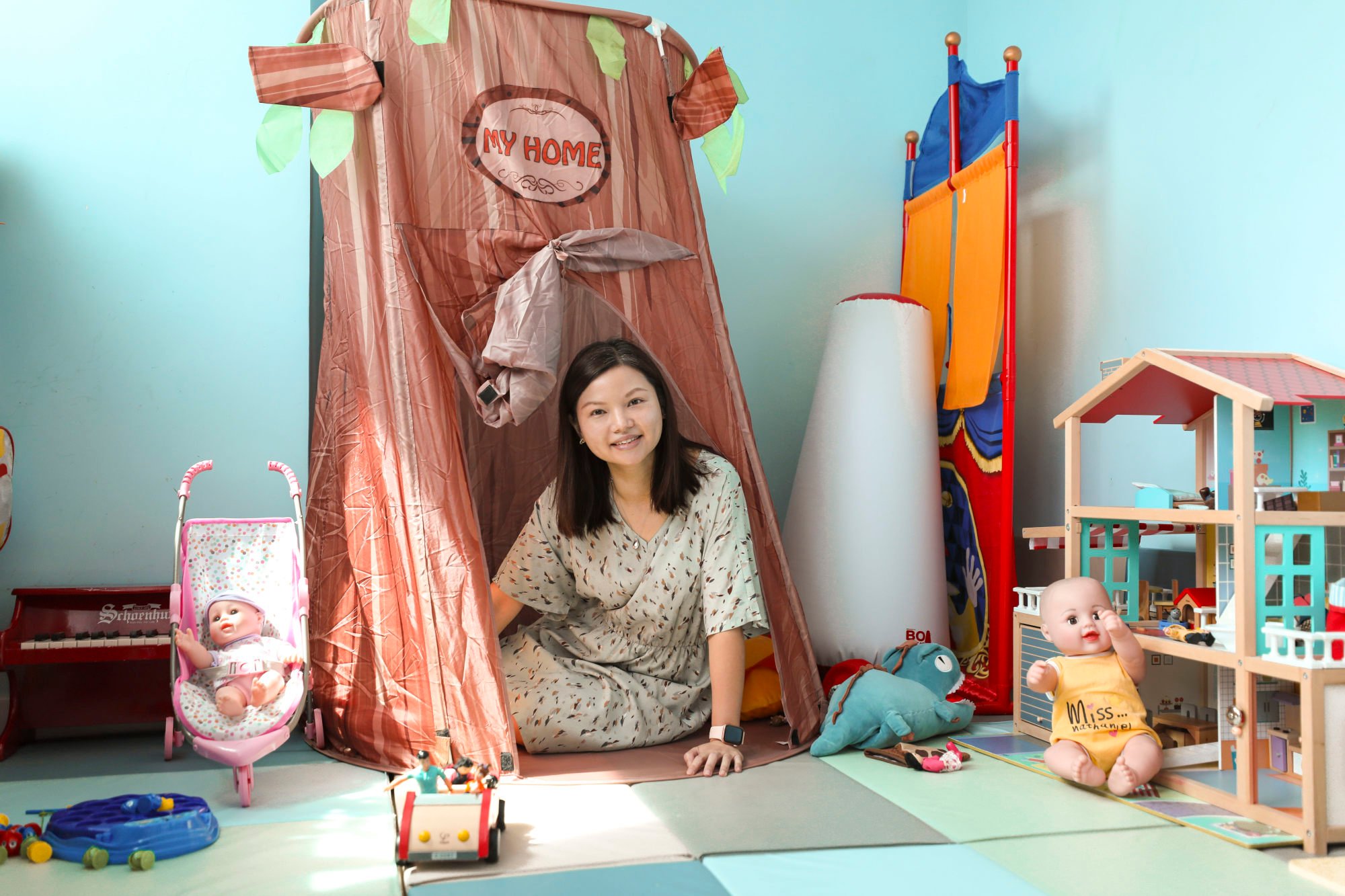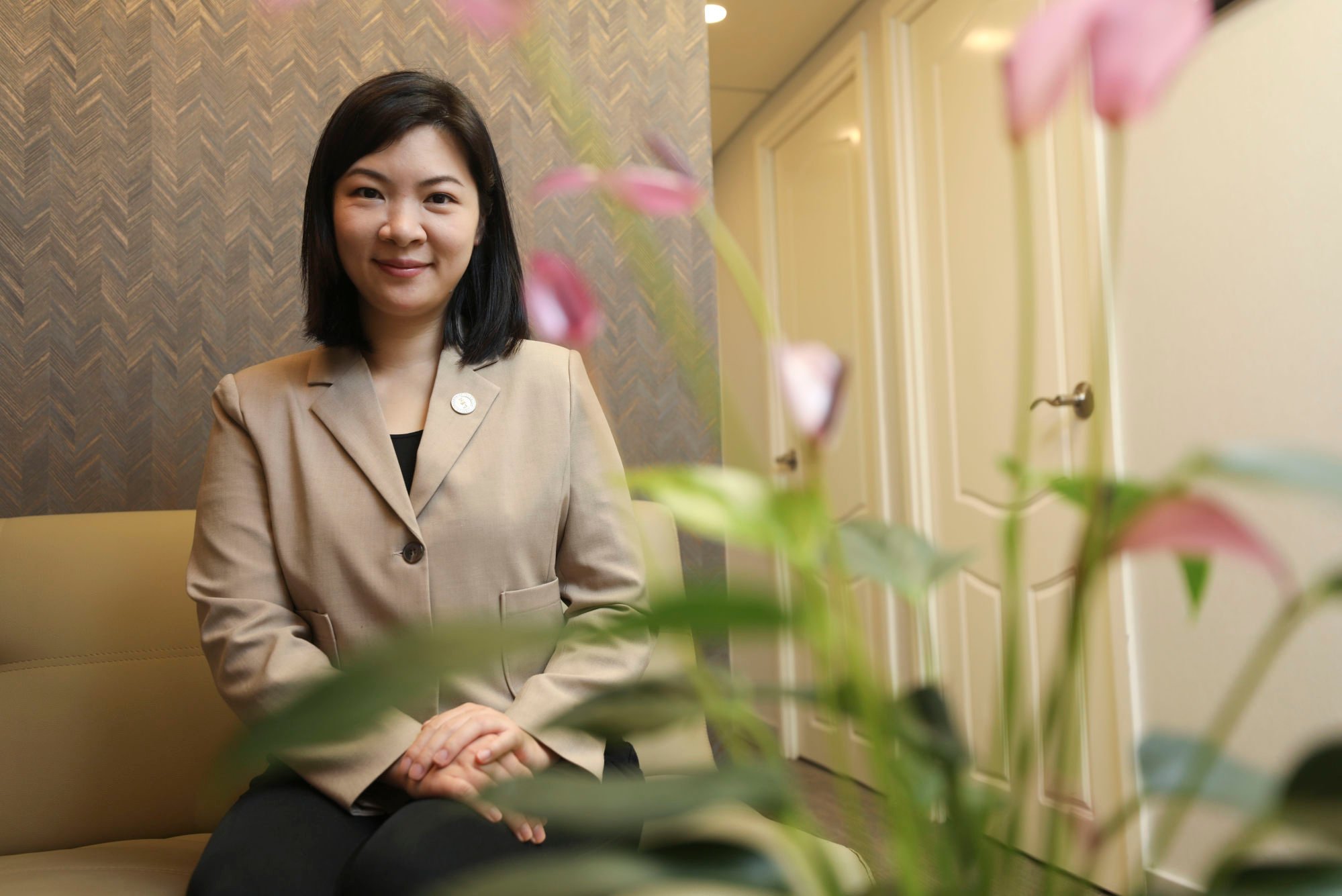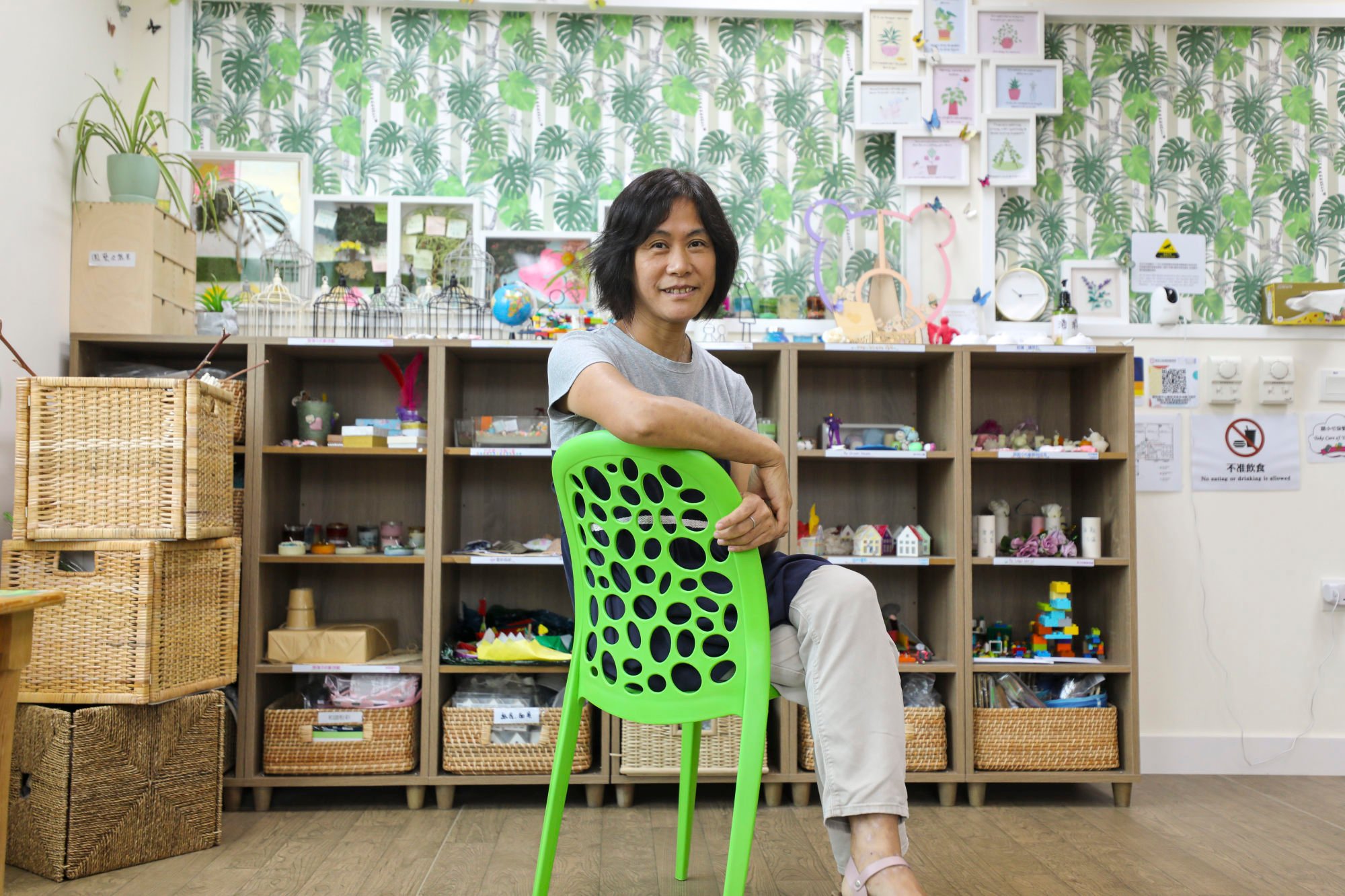
‘What about the kids?’: Hong Kong’s high divorce and remarriage numbers reveal changing attitudes to family
- Remarriages have tripled since 1991 and now account for about one in three marriages in the city
- Counsellors, experts say couples need more help before marriage to prepare for challenges ahead
The make-up of families in Hong Kong has changed rapidly over the past three decades as more couples break up and divorcees remarry, creating challenges at every level of society.
Hongkonger Sally Cheung Siu-lai thought she was just a step away from “happily ever after” when she became pregnant with twins in 2014 after five years of marriage.
Within months, however, her world fell apart when she caught her husband cheating. She filed for divorce two years later.
“I struggled for a long time,” she said, recalling how hard it was to decide to end the marriage. “I didn’t want my babies to be fatherless, but staying with him was torture because he never tried to hide his affairs.”

Now a hypnotherapist and single mother to eight-year-old twin daughters, Cheung, 41, said she felt relieved after the divorce.
“It does not always take a father and a mother to complete a family,” she said. “If the parents are not happy together, the kids will suffer anyway.”
The number of divorce decrees granted a year jumped from 6,000 in 1991 to a record of 21,000 in 2019, before coming down to 16,000 in 2021.
More Hongkongers say no thanks to marriage, babies
The number of remarriages, where either or both parties were previously married, tripled over the past three decades from 4,900 in 1991 to 15,800 in 2019. Remarriages now account for about one in three marriages in the city.
Experts and counsellors acknowledged the changes, but remained concerned about the impact of divorce on children. They called for more resources to help Hongkongers prepare better for marriage and remarriage, and to ensure the well-being of children.
“Family is the basic unit of society, and when that unit is shaken, the overall social well-being, and subsequently the harmonious atmosphere, will be impacted,” warned Professor Paul Yip Siu-fai, a population health expert at the University of Hong Kong (HKU).
Commissioned by the government to lead two in-depth studies of divorce over the past decade, he and his team found that the risk of divorce was higher among low-income households, and peaked during the second to 10th year of marriage.
In Sham Shui Po, one of the city’s poorest neighbourhoods, 7.7 per cent of residents were divorced or separated, according to the latest statistics. That was the highest of the 18 districts, followed by Yau Tsim Mong and Tuen Mun.
“The socio-economic environment has been an important contributing factor because living difficulties can easily trigger conflicts, worsen relationships and subsequently lead to divorce,” Yip explained.
He said researchers had also observed a cross-generational effect of divorce, with children of divorced parents less willing to wed and have children, lacking faith in marriage and family.
Yip added he expected the trend to also worsen the city’s already low birth rate in the long run. Hong Kong scored the world’s lowest fertility rate in 2022, with each woman only expected to have 0.8 children over her lifetime.
Why do marriages go wrong?
A clinical psychologist in private practice, Dr Ken Fung Yat-kin, said the divorce rate partly reflected a “fast-food dating culture” in which couples married too hastily after meeting online.
“When it only takes a swipe to meet a new person, the one you meet is likely seeing a lot of people too,” he said.
“You fear you may lose him if you don’t grasp the chance, so you tell your brain that he’s the one, and that you are very compatible for each other. But after marriage, you realise that’s not the case, and you don’t know how to talk to your partner,” he said.

Fung, who is the director of therapy and counselling at the Jadis Blurton Family Development Centre, said conflicts often arose from communication problems, with some couples preferring not to talk about their problems at all.
“Hong Kong couples often communicate on a functional level, but fail to address the emotional needs of each other,” he said.
Fung said couples could strengthen their emotional connection by having a short chat every day to share their life with each other, and routines of non-verbal exchanges such as hugging as a show of affection.
Fung and Yip said premarital counselling would help couples to build a stronger foundation for marriage and allow them to discuss how they viewed their future, their personal values and parenting styles, and prepare them to handle any conflicts that might arise.
Helen Fu Dan-mui, a family and marriage counsellor at the Society for Truth and Light, which supports divorced families, suggested authorities provide relationship management courses to newlyweds at maternal and child health centres.
“Such education is lacking in Hong Kong … but could help prevent some divorces,” she said.
Divorce inquiries up sharply as coronavirus takes a toll on marriages
No longer married, but still parents
When couples divorce, their children are often stuck in the middle. Ex-spouses battle over maintenance, access to the children and even their affection and loyalty.
A legislative proposal to introduce joint parental responsibility into the city’s family law was suspended after a public consultation in 2015, but the government worked to help divorced parents perform their parental duties.
Five co-parenting support centres have been set up with government funding since 2019.
The Hong Kong Catholic Marriage Advisory Council manages two of the five centres which help divorced couples work out co-parenting plans.
Emily Wong Kit-ming, supervisor of the Kowloon East branch, which supports more than 200 divorced families, said many couples continue to quarrel after divorce, especially over visiting arrangements.
They often complain that the children were not cared for properly, and find it hard to work through parenting conflicts.

Parents who did not have custody of their children often felt the situation was unfair to them, as their ex-spouse had more say over visits.
“So they want to fight for as many rights as possible, and the parent [with custody] would defend against those attacks, and they end up in a battle,” Wong said.
Such conflicts could have a major impact on children’s mental well-being, she said, as some blamed themselves for their parents’ fights, and others developed feelings of hatred towards the parent perceived to be more aggressive.
Hong Kong parents’ stress levels surge amid children’s online learning
“Many children find themselves in a loyalty bind when they want to make both parents happy but feel that loving one will upset the other, so they choose to hide their affection for one when talking to the other,” she said.
The stress caused some children to develop psychosomatic problems such as stomachaches or headaches, and some resorted to pulling their own hair.
“It’s important for divorced couples to set aside their grievances and focus on the well-being of the children objectively … like a business partnership,” Wong said.
Wong said counselling could help individuals deal with the emotions fuelling the conflicts, and they could attend training sessions at the co-parenting centres on effective ways to communicate with their ex-spouse and children.
Social workers may also supervise visitation sessions, to help divorced parents rebuild connections with their children, with play therapy rooms that help children feel safe, she added.
When new partners come along
For many divorced couples in Hong Kong, entering new relationships and remarrying marks another major turning point.
Matchmaker Anita Cheung Wai-ping, founder of dating agency Hong Kong Romance, said divorcees accounted for a fifth of her clients and many were “racing against time” to find love again.
When her agency opened eight years ago, most of her divorced clients were older and seeking new relationships after their children had grown up.

In recent years, she began seeing younger divorcees in their 30s or 40s with young children. There were also divorced childless women in a hurry to remarry and have children.
“They are desperate to form a family of their own, so they marry soon after finding the right one, as they want to have children before their fertility declines,” she said.
Doris Yu Yuk-kwan, a CMAC social worker for co-parenting support, said divorced people also needed premarital counselling before remarrying as many struggled to juggle the needs of their old and new families.
“They need to think thoroughly about how to manage time and maintain proper transparency about parental visits,” she said. “Such communication is essential with the new partner, especially if that person is not divorced.”

Some step-parents were eager to take up parental responsibility and this could result in conflict with the biological parents, if divorcees who remarried did not sort out details of their parenting styles early.
Yu said children could easily end up torn between their biological and step-parents.
Mindy Li Huimin, who leads the Jockey Club “Let Go and Let’s Go” Support Project for Divorce and Blended Families run by the Hong Kong Family Welfare Society, meanwhile, advised divorced parents against rushing to remarry, because they needed to come to terms with the trauma of the previous failed relationship before seeking a new one.
The group deals with different situations, including blended families where two divorced people with children of their own marry, and some go on to have children together.
Breaking point: how coronavirus hits divorcing couples
“One needs to sort out the last relationship and fully understand how one got there, before starting a new relationship,” she said.
That was also crucial for divorced parents so they could understand the needs of their children.
“It’s important for us to continue exploring the cross-generational impact of divorce on children because those who grow up in conflicts tend to use the same ways to handle their own intimate relationships,” she said.
Divorced parents about to start a new relationship should talk to their children, explain the changes, and respect how the children felt about the new arrival.
They should also avoid urging their children to call the new partner mum or dad.
What to know about Hong Kong cross-border divorces as inquiries surge
She said she believed Hong Kong needed to do more to acknowledge how the family make-up was diversifying.
“Divorced and remarried families are no longer a small minority, but people are not well aware of their existence,” she said.
“If society had a more flexible understanding of family, this could lessen the psychological burden felt by divorcees, and help their recovery from the emotional turmoil.”
Real property agent David Chan, 72, said that after he got divorced more than two decades ago, his two sons acted as messengers between him and his ex-wife.
“I mainly spoke to my kids on the phone and met them on family occasions,” said Chan. “My sons had already grown up, so they could largely process the divorce on their own.”
He remarried a few years later and has a 25-year-old daughter with his second wife, but he said he has never forgotten his sons and had maintained a good relationship with them.
“I am glad my wife has no problem with this,” he said, adding that his second family was the focus of his life now.
Will Hong Kong families with children under 15 move up public housing queue?
Divorcee Sally Cheung, who was in her mid-30s when her marriage ended six years ago, decided to start looking for love again using matchmaking services and dating apps.
“Being a single mother was an arduous and lonely journey, and I longed for a companion,” she said.
She had a four-year relationship with a new partner who became close to her twin daughters, but she decided to break up with him.
“I was quite worried that my daughters might lose faith in relationships,” she said, adding that she explained things to the girls and arranged to see her ex-boyfriend with them regularly after the split.
She added she was now seeing someone else and hoped for the best.
“The happiness of my children matters a lot, but so does mine,” she explained. “The older I get, the harder it is to find a partner, so I will continue seeking, and I’m not waiting till they grow up.”

